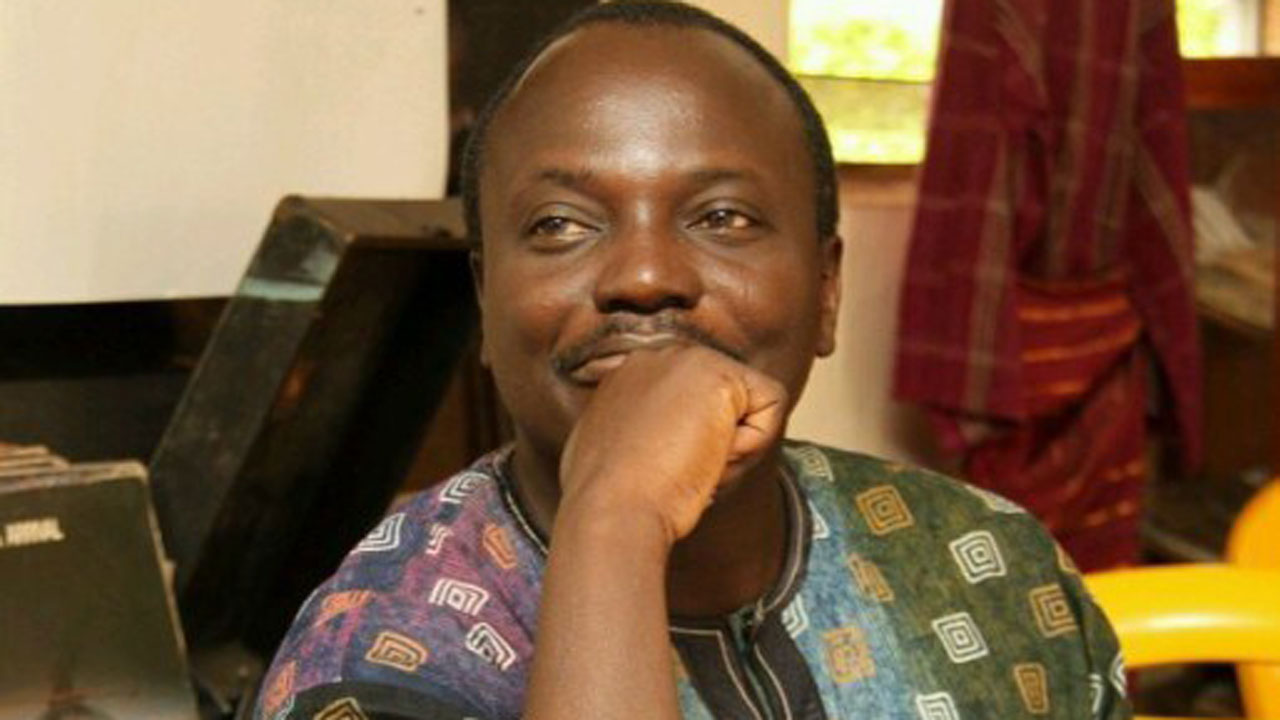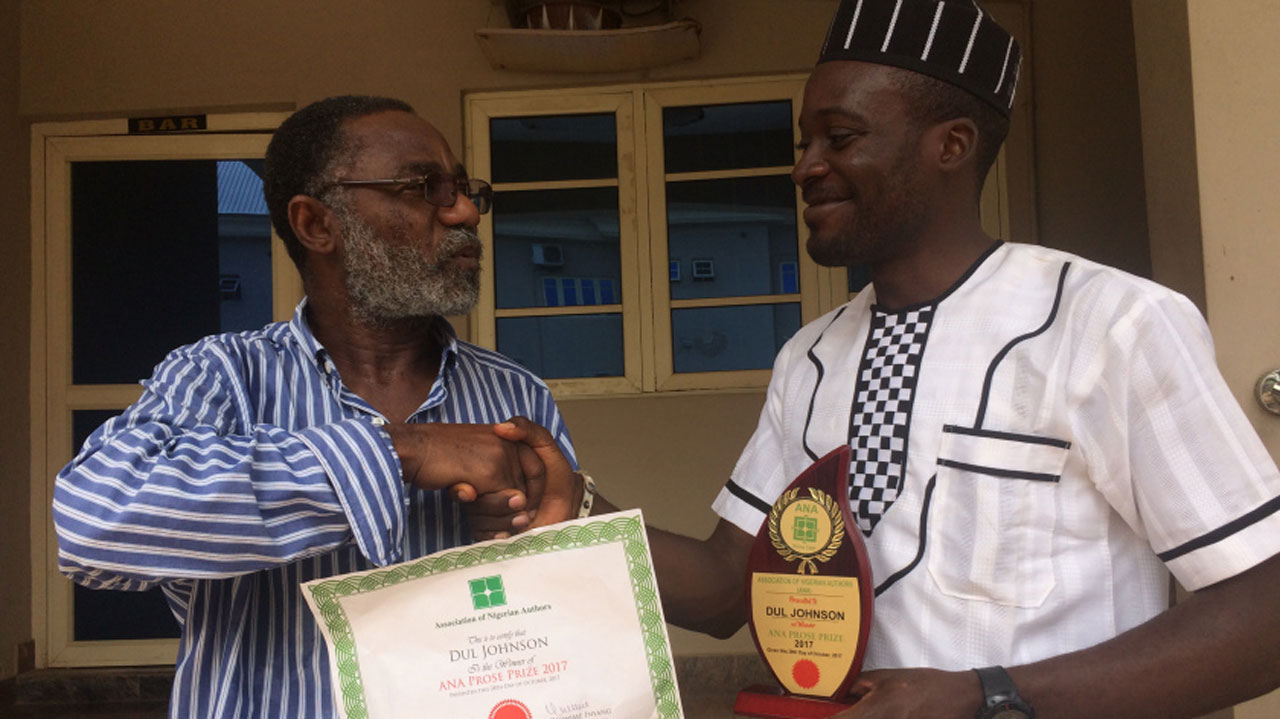
Last Thursday, July 26, 2018, the longlist for the $100,000 Nigeria Prize for Literature was announced. The Prize is Africa’s most prestigious literary award sponsored by Nigeria LNG Limited.
The 2018 longlist of 11 plays chosen from 89 entries was selected by a panel of three judges led by Matthew Umukoro, professor of Theatre Arts at the University of Ibadan. Other members of the panel include, Mohammed Inuwa Umar-Buratai, professor of Theatre and Performing Arts and Dean of Faculty of Arts at the Ahmadu Bello University, (ABU), Zaria; and Ngozi Udengwu, a senior lecturer in the Department of Theatre and Film Studies at the University of Nigeria, Nsukka.
The Prof. Ayo Banjo-led Advisory Board appointed the Umukoro-led panel in February 2018 for the Nigeria Prize for Literature, which has been administering the prize on behalf of Nigeria LNG Limited since 2010. The judges received entries for the 2018 Prize in April.
In the longlist, struggle for political control and power play dominate the themes. The nominees are:
August Inmates by Chidubem Iweka, Death and The King’s Grey Hair by Denja Abdullahi, Embers by Soji Cole, Guerrilla Post by Obari Gomba and Majestic Revolt by Peter E. Omoko.
Others are, Melancholia by Dul Johnson, No More the Taming Hawks by Diran Ademiju-Bepo, Once Upon an Elephant by Bosede Ademilua-Afolayan, Sankara by Jude Idada, The Rally by Akanji Nasiru and Unstable by Dickson Ekhaguere.
A shortlist of three is expected in September and the Advisory Board will announce a possible winner in October.
Members of the Advisory Board for the Literature Prize, besides Professor Banjo, two-time Vice-Chancellor of Nigeria’s premier university, University of Ibadan, are Prof. Jerry Agada, former Minister of State for Education, former President of the Association of Nigerian Authors, and Professor Emeritus, Ben Elugbe, former President of the Nigerian Academy of Letters and president of the West-African Linguistic Society (2004-2013).
As in previous years, the contest for Africa’s most prestigious literature prize will be keenly contested.
The Nigeria Prize for Literature has, since 2004, rewarded eminent writers such as Gabriel Okara (co-winner, 2004, poetry), Professor Ezenwa Ohaeto (co-winner, 2004, poetry) for The Dreamer, His Vision; Ahmed Yerima (2005, drama) for his play, Hard Ground; Mabel Segun (co-winner, 2007, children’s literature) for her collection of short plays Reader’s Theatre; Professor Akachi Adimora-Ezeigbo (co-winner, 2007, children’s literature) for her book, My Cousin Sammy; Kaine Agary (2008, prose) for her book Yellow Yellow; Esiaba Irobi (2010, drama) who clinched the prize posthumously with his book Cemetery Road; Adeleke Adeyemi (2011, children’s literature) with his book The Missing Clock; Chika Unigwe (2012, prose), with her novel, On Black Sisters Street; Tade Ipadeola (2013, poetry) with his collection of poems, The Sahara Testaments, Professor Sam Ukala (2014, drama) with his play, Iredi War; Seasons of Crimson Blossom, Abubakar Adam Ibrahim (2016, prose) and The Heresiad, Ikeogu Oke (2017, poetry).
The Nigeria Prize for Literature with a cash award of $100, 000 is awarded yearly to the best excellent work, alternating amongst four literary genres: prose fiction, poetry, drama and children’s literature will this year be awarded to the best excellent work submitted in the Drama genre.
It is now a trend to be assailed at bookstores, works that have won one literary prize or the other.
Much like winning awards for the musical artistes, writers these days seem to prioritise prizes in order to validate their worth.
Also, like in the music industry, there is a proliferation prizes. Hardly does a week pass without a bandying of prizes that have been recently awarded.
Arguably, the Nigeria Liquefied Natural Gas (NLNG) Limited-sponsored Nigeria Prize for Literature, which comes with a prize cash of $100,000, and Association of Nigerian Authors (ANA) literary prizes with awards in different categories are the biggest and most prestigious prizes in Nigeria.
ANA prizes roll of honour include, stellar names such as Niyi Osundare, Femi Osofisan, Akin Adesokan, Hyginus Ekwuazi, Obari Gomba, Dul Johnson and Tanure Ojaide.
Apart from these two prestigious awards, there are others that are open to Nigerian writers, albeit, via competing with their African counterparts. Such awards include, the Caine Prize, Commonwealth Prize, Etisalat Prize for Literature and others are intensely sought after by writers who aim to hit fame by the fact of their winning these prizes.
For instance, while commemorating a decade since its inception in Ten Years of the Caine Prize for African Writing, in 2009, Jonathan Taylor, Chairman of the Council of the Caine Prize, and Nick Elam, the then administrator, noted in the preface that “winners and shortlisted candidates have seen their careers immeasurably enhanced, typically by attracting the interest of leading literary agents, and having their books published by mainstream publishers, and winning further prizes with them.”
Notwithstanding the fame and recognition that go with prizes, critics have accused some of the writers of undermining their creative worth because they are conditioned by prize expectations.
Literary critic, Ikhide R. Ikheloa, recently in a Twitter chat on SynCity’s “Literary Lords and Ladies” deplored writers for being influenced by what they think would appeal to the prize judges. He stated that “writers are too fixated on winning prizes; they are writing crap that fits what they think the prize judges will like! All we seem to hear of these days are about folks winning prizes!”
Kolade Olanrewaju Freedom, a poet and secretary, Poets In Nigeria shared same sentiments with Ikhide as he observed, “many writers, in an attempt to clinch a literary prize, make it a point of duty to study the philosophy of such prize. Not only do they read up on past winning entries and their thematic engagements, they also beam their search light on the organizers/judges and their published works to know the subjects they are likely to favour.”
Freedom went on to suggest that writers more often than made it an effort “to study such details as hobbies, sentiments and ideologies of the organizers/judges in order for the writers to pattern their works to suit the those preferences.”
The desires of writers to win prizes have had the resultant effect of a large turn out of literary works with stock themes with stereotypical projection of the country.
Freedom noted, “though, literary prizes are primarily designed to promote creativity and excellence, they oftentimes, indirectly determine the flow of ‘literary energy’.”
Responding to the question of writers being conditioned by prizes, Professor Remi Raji said such writers have their ‘legitimate drive’ but he warned they are better be referred to as ‘hack authors’.
The University of Ibadan teacher said, “a writer who produces stock themes that fit the interest of a literary organisation (if any) has his own legitimate drive, but alas, such writer is better called a hack author or a commission author. The grant- or prize-seeking author does double damage to his writing and confidence should he fail to win in the end. The literary tradition itself is diminished by such mercantilist motivation.”

For Nduka Otiono, an Assistant Professor and Graduate Programme Coordinator at the Institute of African Studies, Carleton University, Ottawa, “awards have a way of stimulating creativity. It also rewards creativity. The reason being that, especially, in third world countries, where the paths available to many artistes for excellence are rather limited. It is not going to be that you hit gold, because you’re a Joanne Rowling, who has published Harry Potter. It is not like you have hit gold, because you’ve come upon this creative piece that is going to change your life. That’s not the way it works here. You produce works that are exceptional and they probably do not enjoy circulation. So you still have to struggle for the same thing that you had to deal with. However, winning awards have a way of drawing more attention to your work.”
Supporting the writer, whose work is conditioned to win, he said, “in Nigerian context, the mileage that people get from awards is not commensurate with the profiles of the awards that’s where the problem lies. You will think that winning an NLNG Prize is like winning a Pulitzer or the big ones like The Man Booker that becomes life changing. I don’t think it is possible.”
The ward winning scholar and creative writer, added, “awards offer financial reward that supports you in an ever-demanding environment that shortchanges you, like struggling with rights and others. It can be a stimulant for further work.”
Otiono recognises these awards for spurring creative growth. “They are stimulant for creativity, for providing pecuniary needs that writers require to function in that case, they are desirable and I will support more of such awards,” he said.
Jude Idada, NLNG Prize nominee in 2014, has this to say: “I write about what interests me. If it wins an award, fine, if not, all good. The readership and assimilation of the message and theme is what is most important.”
He continued, “awards majorly influence some writers. But not me I am an artist through and through. For me awards are more for publicity and readership. It just gets people to know more about the title or book or theme or subject etc.”
Talking on young writers, whose craftsmanship is conditioned by award-winning mindset, Idada said, “If something or someone hasn’t won an award, they don’t give them any attention. When I meet them, that’s what they ask me. ‘Have you won any awards?’ it’s a plague.”
Winner of the NLNG Nigeria Literature Prize in 2013, Tade Ipadeola admitted, “there are themes, of course, that tend to fetch attention if the writer executes the work with a degree of passion and competence;” he, however, warned “it is always a bad idea for a writer to write for literary prizes or for a particular prize…If prizes come along the way, well and good.”
Instead of writing primarily to suit prize expectations, Ipadeola believes that writers should aim to create enduring works of art. His words: “A serious writer should aim to create a work of art that life itself would affirm. I say this because I know that some set out to win particular prizes. What is the use, if a work wins a prize today and isn’t part of the canon in a hundred years? Some of the greatest writers actually turned down literary prizes. Leo Tolstoy, Dennis Brutus, Sartre, Okigbo and a number of other really vital writers turned down important prizes at some point. Grand writing is its own reward, really.”
Raji, however, urged writers to create works that reflect their innermost expression as reaction to the world around and not be motivated by mercantilist drives.
He stated, “real writers don’t, should not write for prizes; real writers are those who produce the literary work as material of their innermost expression and as reaction to the world around them. They are not necessarily mercantilist; they do not compose fictionally in order to win: rather, prizes are established to affirm the quality of the work’s ingenuity.”
With reading habit at almost an all time low in the country coupled with the drive of writers to ‘break out’ and become stars, it is left to be seen if literary prizes will cease to dictate the themes and subject matters of what constitute the Nigerian literature in the foreseeable future.
[ad unit=2]






